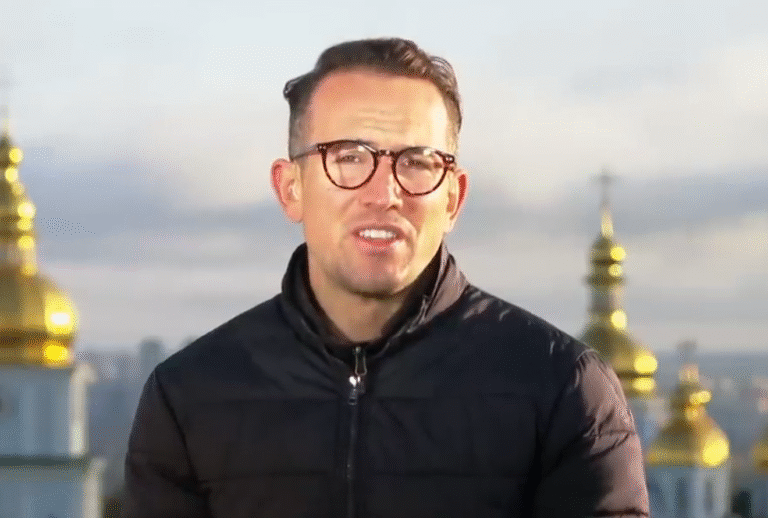Introduction
Hugo Bachega, a prominent journalist and correspondent for BBC News, is known for his insightful reporting and distinctive accent. His voice carries a unique blend of influences, reflecting his multicultural background and professional journey. But what exactly defines Hugo Bachega accent? Where does it come from, and why does it stand out?
In this article, we’ll explore the linguistic characteristics of Hugo Bachega accent, its origins, and how it contributes to his on-screen presence. We’ll also discuss the broader implications of accents in journalism and media representation.
Understanding Hugo Bachega’s Background
Early Life and Education
Hugo Bachega was born in Brazil, a country known for its rich linguistic diversity. Portuguese is the official language, but regional accents vary significantly. Growing up in Brazil, Bachega was exposed to the Brazilian Portuguese accent, which differs from European Portuguese in pronunciation, intonation, and rhythm.
Professional Journey and Language Adaptation
Bachega’s career took him to different parts of the world, including the Middle East and the United Kingdom. As a BBC correspondent, he communicates primarily in English, but his speech retains traces of his Brazilian roots. Over time, his accent has evolved, incorporating elements of British English, especially in formal reporting.
Analyzing Hugo Bachega Accent
1. Brazilian Portuguese Influence
Since Portuguese was his first language, certain phonetic traits carry over into his English pronunciation:
- Vowel Sounds: Brazilian Portuguese has open vowel sounds, which can make his English pronunciation slightly softer compared to native British speakers.
- Rhythm and Intonation: Portuguese is a syllable-timed language (each syllable takes roughly the same time), whereas English is stress-timed (emphasis on certain syllables). This can make his speech rhythm distinct.
- Consonant Pronunciation: The Brazilian “R” is often pronounced as an “H” sound (e.g., “Rio” sounds like “Hio”), which might subtly influence his English articulation.
2. British English Adaptation
Working for the BBC, Bachega has adapted to a more neutral British accent, particularly in formal settings. Key features include:
- Received Pronunciation (RP) Traits: While not fully RP, his speech leans towards clarity and precision, avoiding strong regional British accents.
- Neutralized Vowels: He tends to use the British “a” sound (e.g., “path” pronounced with a longer “a” rather than the American short “a”).
3. International Journalist’s Hybrid Accent
Many foreign correspondents develop a hybrid accent—a mix of their native tongue and the dominant language of their workplace. Bachega’s accent is neither fully Brazilian nor entirely British but sits comfortably in between, making it easily understandable to a global audience.
Why Does Hugo Bachega Accent Stand Out?
1. Clarity and Professionalism
His accent is clear and articulate, essential for journalism where precise communication is crucial. The slight Brazilian influence adds a unique touch without compromising comprehension.
2. Reflects Multicultural Experience
In an increasingly globalized world, accents like Bachega’s represent the blending of cultures. It signals adaptability and a deep understanding of multiple linguistic contexts.
3. Relatability to International Audiences
Unlike heavy regional accents that may be hard for some listeners to understand, Bachega’s balanced pronunciation makes his reporting accessible to diverse audiences.
The Role of Accents in Journalism
1. Credibility and Perception
Studies show that accents can influence how audiences perceive a journalist’s credibility. Neutral or prestigious accents (like RP in the UK) are often associated with authority, while strong regional or foreign accents may face unconscious bias.
2. Diversity in Broadcasting
Modern journalism embraces diverse accents, moving away from the traditional “BBC English” dominance. Journalists like Hugo Bachega contribute to this shift, proving that clarity matters more than sounding “native.”
3. The Future of Media Representation
As news organizations become more inclusive, we’ll likely hear more varied accents in broadcasting. This enriches media representation and reflects the true diversity of global audiences.
How Hugo Bachega Accent Compares to Other Journalists
| Journalist | Native Language | Prominent Accent Traits |
|---|---|---|
| Hugo Bachega | Brazilian Portuguese | Blend of Brazilian Portuguese and British English |
| Christian Fraser (BBC) | British English | Scottish-influenced RP |
| Katty Kay (BBC) | American English | Neutral American with slight British influence |
| Lyse Doucet (BBC) | Canadian English | Canadian accent with British undertones |
This comparison shows that many top journalists have hybrid accents, proving that effective communication transcends a single “standard” pronunciation.
Conclusion: The Power of a Unique Accent
Hugo Bachega accent is a testament to his multicultural journey—rooted in Brazil, refined by British journalism, and polished for global audiences. It demonstrates that in today’s media landscape, what matters most is not conforming to a rigid accent standard but delivering news with clarity, professionalism, and authenticity.
As audiences become more accepting of diverse speech patterns, journalists like Bachega pave the way for a more inclusive and representative media world. Whether you’re a linguistics enthusiast, a journalism student, or just a curious listener, understanding accents like his offers fascinating insights into language, culture, and identity.
FAQs About Hugo Bachega’s Accent
1. Is Hugo Bachega accent purely British?
No, it’s a mix of Brazilian Portuguese and British English, with a neutralized tone suitable for international reporting.
2. Why do some non-native speakers sound British when working for the BBC?
The BBC traditionally favored Received Pronunciation (RP), but now encourages clarity over a specific accent. Many journalists naturally adapt to a more neutral British tone for broader comprehension.
3. Does his accent affect his credibility?
Not at all. His accent is clear and professional, enhancing his credibility as an international correspondent.
4. Can accents change over time?
Yes, prolonged exposure to a different language environment can subtly alter pronunciation, a phenomenon known as accommodation.
5. Are there other journalists with similar hybrid accents?
Yes, many international reporters, like Lyse Doucet and Christian Fraser, have accents shaped by their multicultural experiences.
Explore more fascinating insights and diverse topics on Premagazine.co.uk—your go-to destination for thought-provoking articles on culture, language, and beyond!


